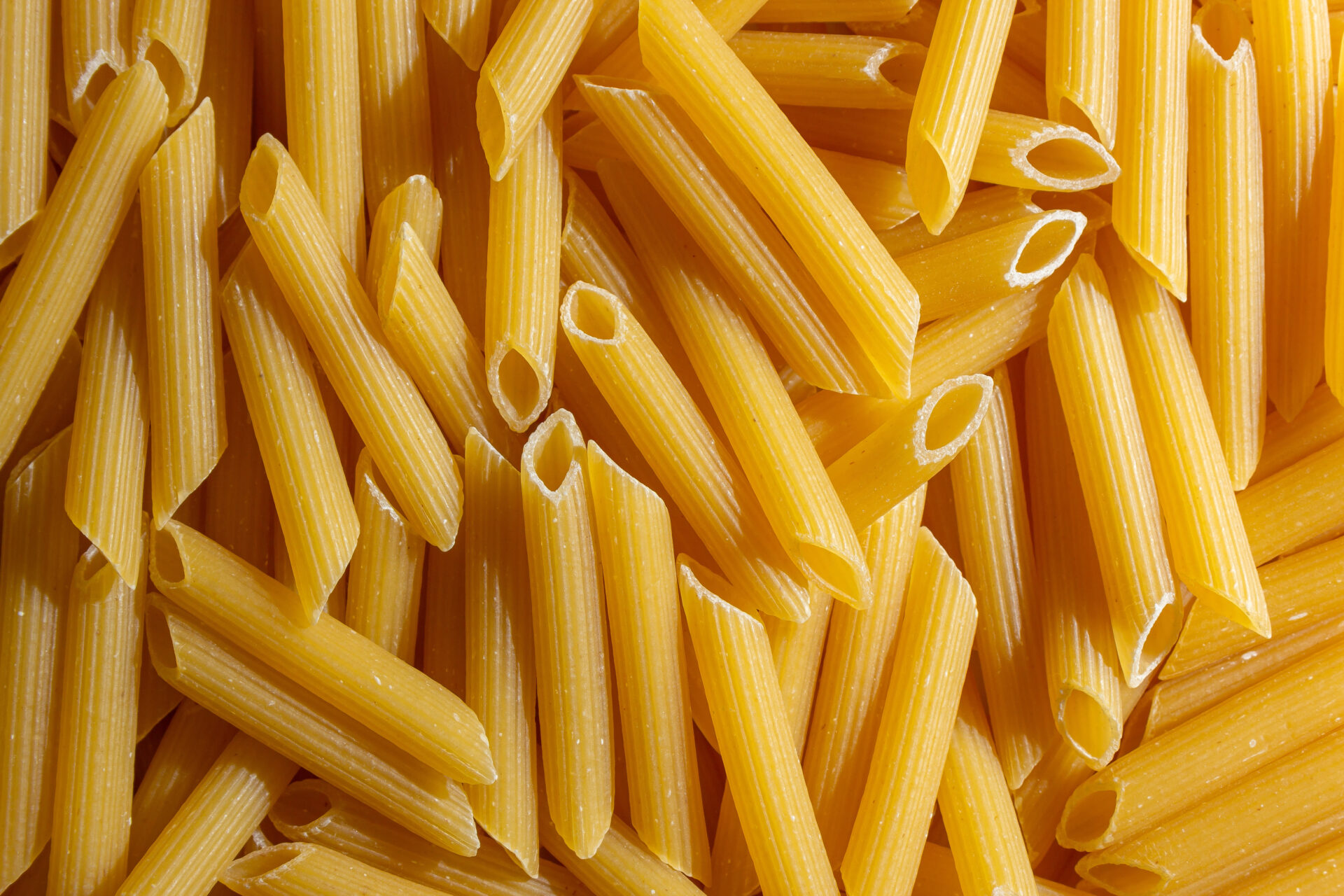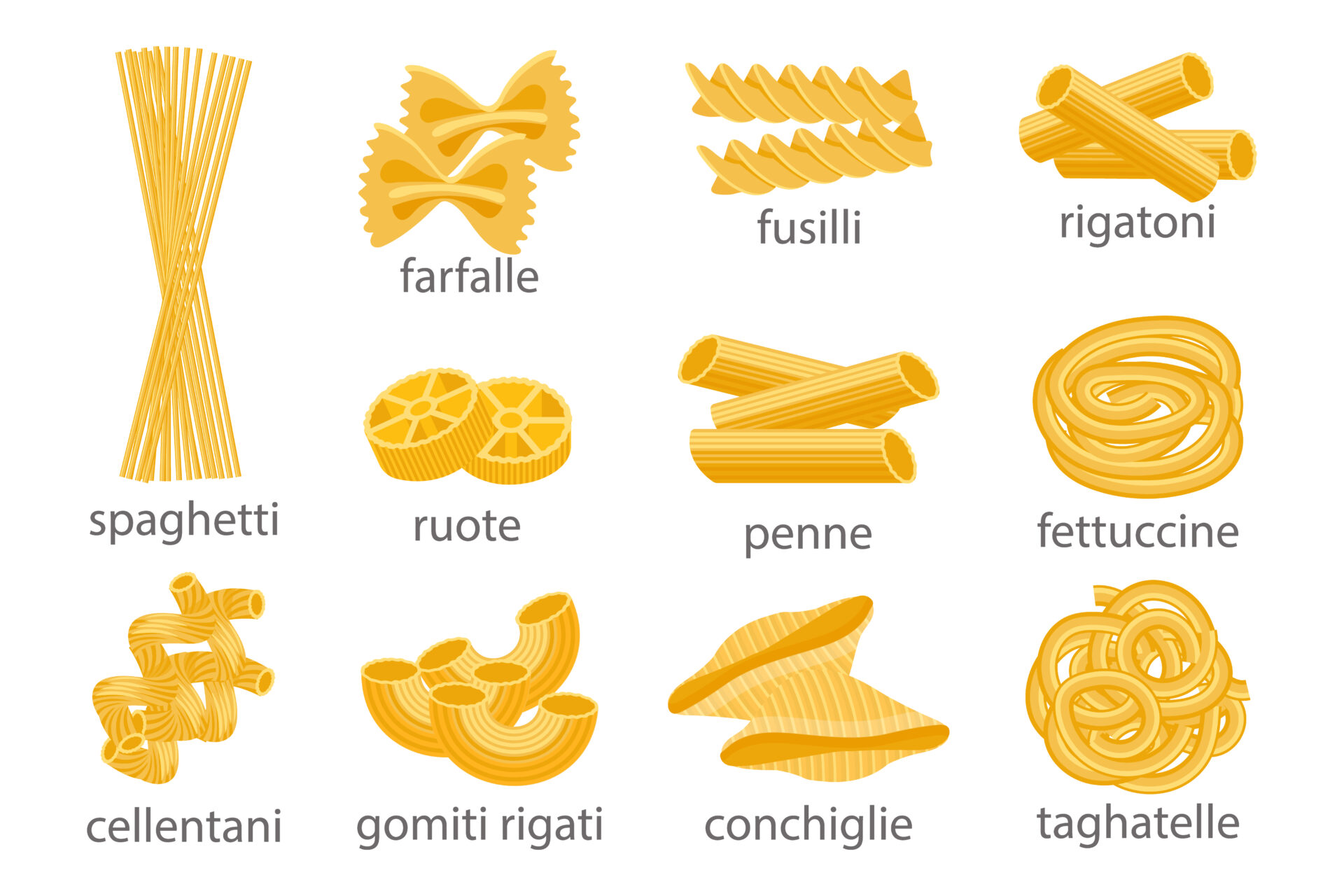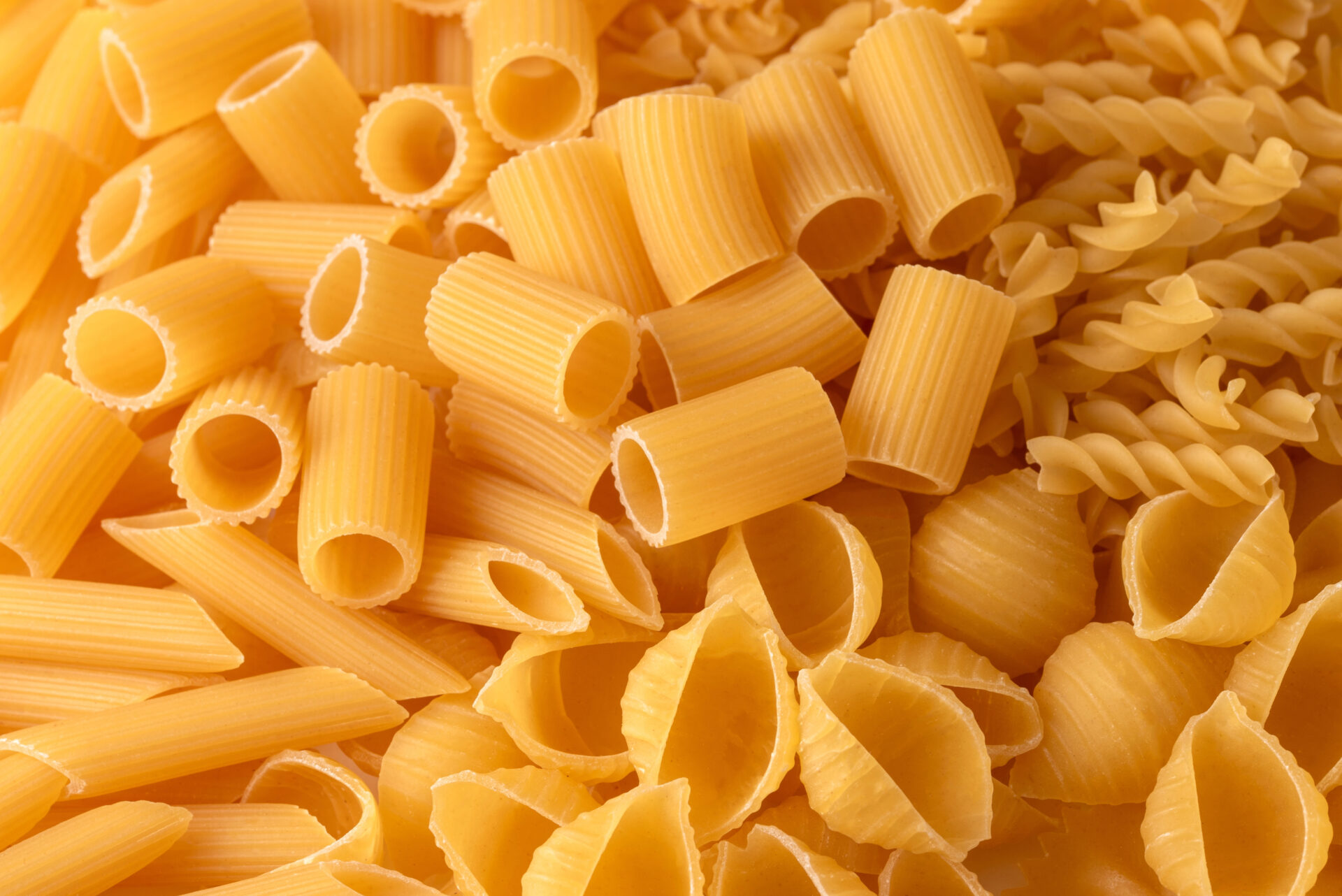Is your favorite pasta exposed to PFAS “forever chemicals” during manufacturing? This was a concern of our audience after discovering the differences between bronze die cut pasta and regular pasta. You’ve trusted Mamavation to bring you topics like (1) safest cooking oils tested for toxic phthalates, (2) safest green teas tested for pesticides and PFAS “forever chemicals,” (3)safest seltzer water tested for PFAS “forever chemicals” and (4) safest water filter machines that can handle multiple PFAS chemicals. Now, join us as we bring you pasta that has been tested for indications of PFAS “forever chemicals.”
Disclosure: This consumer study is released in partnership with Environmental Health News. Donations were provided by Environmental Health News and Mamavation community members. Note that Mamavation has only “spot-checked” the industry and thus we cannot make predictions about brands and products that we have not tested. Products and manufacturing aides can change without notice so buyer beware. This post contains affiliate links, with some to Amazon, which means Mamavation will receive a portion of those sales and we will use that to pay ourselves back for the testing. You can also give a tax-deductible donation to our consumer studies here through Environmental Health Sciences. Thank you!

Table of Contents
Mamavation’s Lab Finds No Indications of PFAS “Forever Chemicals” In Pasta (So Far)
Mamavation’s EPA-certified laboratory found no indications of PFAS “forever chemicals” after analyzing 8 pasta products. PFAS is found in many other areas of our homes with some examples being cookware, makeup, drinking water, contact lenses & dental floss. These chemicals are linked to serious health effects, which we will discuss later. Because PFAS are so toxic, Mamavation has commissioned our own scientific studies on indications of PFAS in products to make recommendations for pasta using PFAS-free materials in manufacturing. Read Mamavation’s articles on these products to find which brands are organic-fluorine-free.
For this consumer study, Mamavation sent eight pasta products from four popular brands to an EPA-certified laboratory looking for indications of toxic PFAS “forever chemicals.” This is done through total organic fluorine testing as a “spotcheck analysis.” Here’s what we found:
- 0% of total pasta products tested had indications of PFAS “forever chemicals.” That’s zero detections from eight pasta products. The detection limit was 10 parts per million (ppm).
- This is good news! Please scroll to the bottom of the post for the results of what we tested.
Bronze Die Pasta Vs. Regular Pasta
Hold the PFAS, but give me all the garlic, cheese, sauce, basil, and other delicious ingredients you have for pasta! Mamavation started sending different pastas to the laboratory for testing after community members expressed concern about the PFAS used in pasta manufacturing. This is because most pastas are either “bronze cut” or “Teflon cut,” meaning they are cut by something with or without a PFAS coating. Here’s those choices:
- Bronze Die/Cut: Use of bronze to cut pasta. Typically, it has a rougher texture that helps the pasta maintain its flavor.
- Teflon (conventional) Die/Cut: Use “teflon” coatings (similar to cookware) to cut pasta. Cheaper & easier way to manufacture pasta. What most brands are using.
According to Epicurious: “Manufacturers mix flour and water into a dough that they then push through a mold, or “die,” working it into the shapes that appear on grocery shelves: orecchiette, penne, etc. Most modern producers coat their dies in Teflon, and the pasta made through them comes out smooth and shiny.”
Using Teflon to cut pasta may be a great way to save money, but then you risk the PFAS getting into the food product over time and use. Because “Teflon” is a type of PFAS “forever chemical,” we cannot recommend consuming products made from PFAS coatings as a precaution.
Another way PFAS can get into your pasta is if the water from your tap also contains PFAS. To solve that problem, check out the independent studies we covered on this very topic, so you can select the best system that filters PFAS.

PFAS “Forever Chemicals” Have Problematic Health Effects
PFAS “forever chemicals” are problematic for human health and the environment. They are considered ubiquitous, persistent, and toxic. Many of these PFAS chemicals can last for years or decades in our bodies. The health effects of exposure to PFAS on the skin in sensitive areas like breast tissue are unknown. It’s also unknown what happens when it is absorbed into our tissues and travels around in our bodies. However, we do know that these areas can be vulnerable to toxic chemicals like PFAS “forever chemicals” because of the proximity to breast tissue and the lymphatic system. Therefore, it’s imperative to reduce the amount of PFAS you are exposed to from food, water, and consumer products. Mamavation is dedicated to helping you do that when you are shopping for pasta.
Here are some of the health effects of different PFAS “forever chemicals:”
- Reduction in immunity
- Reduced vaccination response
- Increased risk of allergies & asthma in young children
- Affected growth, learning, and behavior of infants and older children
- Increase cholesterol levels
- Metabolic diseases like obesity & diabetes
- Cardiovascular disease
- Lowered a woman’s chance of getting pregnant
- Lowered male fertility
- Increased risk of kidney & testicular cancers
- Causes endocrine disruption
- Disrupted normal thyroid function
- Increases risk of acute lymphoblastic leukemia in children
It’s also very clear based on biomonitoring evidence from the Center for Disease Control (CDC) that PFAS are in all Americans. Therefore, these exposures can harm most Americans.

Other Categories of Products Mamavation Has Tested for Indications of PFAS “Forever Chemicals”
Before we launch into the raw data from our lab, we wanted to remind you about all the other studies we have done on indications of PFAS “forever chemicals” inside the food and consumer products you may bring inside your home. Each one of these studies were done in a similar fashion as this study with brands sent independently to the lab and raw data of those labs at the bottom of the post.
- Deodorants
- Nursing Bras
- Activewear (Yoga Pants)
- Sports Bras
- Dental Floss
- Toilet Paper
- Period Underwear
- Tampons
- Sanitary Pads, Pantiliners, & Incontinence Pads
- Soft Contact Lenses
- Green Beauty Makeup
- Lip Balm
- Condoms & Lubricants
- Powdered Electrolytes
- Butter Wrappers
- Pasta & Tomato Sauces
- Nut Butters (Peanut butter, etc.)
- Ketchup
- Parchment Paper
- Cupcake Liners
- Plastic-Free Straws
- Fast Food Packaging
- Children’s Probiotics
- Kids’ Backpacks
- Baby Strollers
All additional consumer studies are posted here.

Mamavation’s Investigation of Pasta & Indications of PFAS “Forever Chemicals”
Pasta products were purchased between 2024 and 2025. For this consumer study, most products were purchased by community members and sent to us in original packaging.
Testing: Mamavation’s EPA-certified laboratory uses marker testing to identify the potential presence of PFAS “forever chemicals” in pasta. Organic fluorine is a marker for PFAS because all PFAS chemicals are carbon-based compounds that contain fluorine. The specific lab method used to test for total fluorine was the Determination of Total Fluorine by Oxygen Flask Combustion and Ion-Selective Electrode. If total fluorine was observed at a detection level of 10 ppm or greater, the lab did the Determination of free Fluoride Ion in the product by Ion-Selective Electrode and then subtracted that from the Total Fluorine to determine the amount of organic fluorine. This marker testing is likely to show the presence of PFAS. Organic fluorine can also capture other fluoropolymers, pharmaceuticals, and common hydrofluorocarbon refrigerants, such as 1,1,1,2-tetrafluoroethane (commonly known as R-134a) and 2,3,3,3-tetrafluoropropene (commonly known as HFO-1234yf), which are all also PFAS. None of which you want around your food or personal care products!

Not Our Favorite Pasta
These brands were sent to the laboratory and had a detection of organic fluorine, a marker of PFAS. So far, there are no products in this category. Fingers crossed we never find any!
- So far, no brands have had detections.
Better Pasta
These products were sent to the laboratory and had non-detect results for indications of PFAS “forever chemicals.” However, because they are not organic, there may be residues of different types of pesticides, like glyphosate, etc. We cannot confirm this because we did not test them for pesticides.
- Rao’s Homemade Premium, Traditionally Crafted Spaghetti
- De Cecco Mugnai dal 1831 Spaghetti no. 12
- Rummo Fusilli No. 48
- Rummo Gluten Free Spaghetti No. 3 made with Rice & Corn
- Rummo Spaghetti No. 3
Best Pasta
These products were sent to the laboratory and had non-detect results for indications of PFAS “forever chemicals.” They are also USDA certified organic, so they likely have far less pesticide residue contamination. However, we did not do testing of pesticides to confirm this.





 Ultimate Non-Toxic, Organic & Natural Holiday Gift Guide 2025
Ultimate Non-Toxic, Organic & Natural Holiday Gift Guide 2025
So, I just read (AI Photo Editor) that Mamavation found zero indications of PFAS “forever chemicals” in eight pasta products! That’s a relief! It’s great to know that they use an EPA-certified lab for testing, especially when everyone is worried about chemicals in food. I can’t help but think about how I wonder if my pasta is safe while I’m cooking dinner after work.
Good to know—PFAS-free is a plus, but without organic certification there’s still a chance of pesticide residue
There really could be a better way to present this very useful data. Personally, I just scroll down the page until I reach the specific items tested, and ignore the rest of the repeated (over and over and over) information. But what a great way to annoy and chase away new readers, especially those attention span deficient ones.
Gotta remember this “mental age test” moment for the next grocery run! Phew!
Hi, have you tested the usual, supermarket pastas like Ronzoni or Barilla for “forever chemicals” or is it assumed, because they are not bronze cut, that the contain PFAS? The list of pasta in your evaluation are all bronze cut pasta. These days, pastas like Ronzoni go on sale more often , therefore are more affordable.
Thank you, Jean
I have always wondered why you dont test any of the Costco brand or any Costco products. They have lots of organic products and would like to see some of there results.
Thanks
Thank you for all your good work. Our local health food store sells pasta from Italy, bronze die, Organic so I tend to trust this but they are not the brands you tested. The imported Italian sauces seem pretty good too.
ALB-GOLD Whole Spelt Spaghetti Pasta is the best. Berlin natural bakery sells it on there website. The spelt sourdough bread is good too.